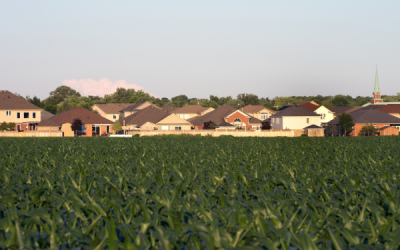“Hold up, wait a minute, let me put some GM in it.” — wheat researchers, probably
Wheat farmers knead this: The USDA announced the deregulation of a drought-tolerant trait in wheat from an Argentina-based company, which means there’s a possibility of a rising GM wheat product.
Bread and butter: The USDA Animal Plant Health Inspection Service deemed the HB4 wheat is unlikely to pose any more plant pest risk than similar strains, which means sourdough starters and wheat farmers alike can rejoice—this product can be grown and bred in the U.S.
Soundbite: “The HB4 trait has tremendous potential—particularly for growers in Kansas who, in 2023 had the smallest crop since 1966 because of drought.” — Kyler Millershaski, National Association of Wheat Growers (NAWG) board member and wheat farmer in Kansas
A toast to wheat: The U.S. Wheat Associates and NAWG are thankful for the USDA’s decision to “provide a robust, science-based process that affords a pathway for the cultivation of the HB4 trait, which has the potential to benefit both farmers and consumers.”
But wait a second there, swheatheart: This is only the beginning, the drilling if you will, of a long road to cultivation: field trials still need to happen. An important aspect for the wheat industry to manage is the export market. Obtaining regulatory approval for HB4 wheat from the countries the U.S. exports to is crucial.
The wheat is already waving: The Argentinian company, Bioceres Crop Solutions, has already received approvals in Nigeria, Brazil, Colombia, Indonesia, and South Africa, and has applied for approval in several other countries. Farmers in Argentina and Brazil are already growing HB4 wheat. Bioceres is also planning field trials in Australia.
New Carbon Tale Featuring (Grass-Fed) Cow Tails
We all love a good grass-fed, grass-finished beef cattle carbon emissions story—and JBS Farm...
From Cornfields to Concrete: The Midwest Dilemma
"Ope… let me scoot past ya here to buy up some of your farmland." – Developers in the Midwest...
Pouring Funds into Water Conservation
Funds for farmers to keep farming—but with less water—are headed west. Downpourload: Agriculture...




